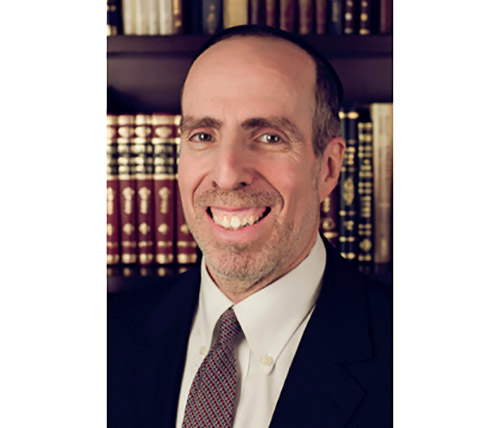
Part II
Successes and Failures of Medinat Yisrael
Many note that although we are grateful to Hashem for giving us Medinat Yisrael, we must acknowledge the shortcomings of Medinat Yisrael. Besides the chronic security challenges, there are spiritual shortcomings. Rav Ovadia Hadaya (Teshuvot Yaskil Avdi O.C. 10:7) rules that Hallel should not be recited on Yom Ha’atzmaut because of the unstable security situation. Instead, he suggests reciting the chapters of Hallel (omitting the bracha) after the completion of tefillah. Rav Ovadia Yosef relates that Rav Tzvi Pesach Frank did not recite Hallel on Yom Ha’atzmaut in his beit midrash because of the security problems and the spiritual shortcomings of the nation. Moreover, the Chazon Ish (Letters of the Chazon Ish, number 97) writes that it is inappropriate for this generation, with all of its spiritual flaws, to institute new practices. The Chazon Ish wrote this in connection with establishing Yom Hashoah, and his reasoning applies to instituting the recitation of Hallel on Yom Ha’atzmaut.
Nevertheless, many gedolim endorse reciting Hallel on Yom Ha’atzmaut. Teshuvot Kol Mevaser (number 21) and Teshuvot Neitzer Mataai (number 36) rule that Hallel may be recited with a bracha, while other gedolim believe that it should be recited without a bracha. These gedolim include Rav Aharon Soloveichik (Gesher, Yeshiva University, 1969), and Rav Yitzchak Herzog (cited in Teshuvot Yabia Omer 6: O.C. 42).
Rav Ovadia Yosef notes that although we are profoundly disappointed at the overall spiritual level in Israel, we should appreciate the incredible growth of Torah study and observance in many sectors of the population. He writes that Israel has become the world Torah center. We add that since the retirement of Rav Moshe Feinstein and Rav Soloveitchik in 1985 almost all very serious halachic questions are referred to the great halachic authorities in Israel for adjudication.
Some cite the Mishna Berura (219:2) that one recites Birkat Hagomel only upon full recovery from illness and not partial recovery as support for omitting Hallel on Yom Ha’atzmaut. They claim that the Jewish people have only partially recovered from the illness of the Holocaust and the exile and thus it is not yet time to recite Hallel for the establishment of the State of Israel. Others respond that the Gemara (Brachot 59b) states that when one hears of his father’s death he should recite two brachot if there is an inheritance. He recites Dayan Emet upon the death and Shehechiyanu upon the joy of the inheritance. Halacha, as Rav Yosef Dov Soloveitchik has noted, does not subscribe to binary thinking. The Halacha appreciates and addresses complexity and ambivalence. Accordingly, many recite Hallel on Yom Ha’atzmaut as well as mourn on Tisha B’Av. We celebrate the accomplishments of Medinat Yisrael on Yom Ha’atzmaut and mourn what we lack on Tisha B’Av.
Conclusion
It is difficult to arrive at a definitive conclusion whether one should recite Hallel with a bracha on Yom Ha’atzmaut. Hence, most of those who recite Hallel on Yom Haatzmaut omit the bracha. The practice of reciting Hallel without a bracha upon a miracle is recorded in the aforementioned Meiri’s commentary to Pesachim 117a. Moreover, the practice of reciting Hallel without a bracha is familiar to most Sephardic Jews who follow the opinion of the Rambam (Hilchot Chanukah 3:7) and the Shulchan Aruch (Orach Chaim 422:2) to recite Hallel without a bracha on Rosh Chodesh and the last six days of Pesach. Far from being a “cop-out,” the approach of reciting Hallel without a bracha is an expression of a sophisticated recognition of both the greatness and shortcomings of Medinat Yisrael. We are full of joy that Medinat Yisrael exists, but we do not ignore its shortcomings.
Although Rav Ovadia is not enthralled with reciting Hallel on Yom Ha’atzmaut, at Congregation Shaarei Orah, the Sephardic Congregation of Teaneck, we follow in the footsteps of the great Ribi Shalom Messas. Ribi Shalom Messas believed in reciting Hallel on Yom Ha’atzmaut even with a bracha. However, out of respect to the ruling of Chacham Ovadia Yosef, he said Hallel should be recited without a bracha (Teshuvot Shemesh U’Magein 3:63:6). Such is our practice at Shaarei Orah.
Postscript
In light of the challenges faced by Medinat Yisrael, it is of critical importance for everyone to do their utmost for the State of Israel and klal Yisrael. The NORPAC trip to Washington, Wednesday, April 25, is an outstanding opportunity to do something significant for klal Yisrael—meeting with almost every senator and congressman to strengthen American-Israeli alliance. I humbly submit that while reciting Hallel on Yom Ha’atzmaut is a significant expression of support for the State of Israel, participating in the NORPAC trip is of equal if not greater importance. For more information, visit www.norpac.net.
By Rabbi Haim Jachter
Rabbi Haim Jachter is the spiritual leader of Congregation Shaarei Orah, the Sephardic Congregation of Teaneck. He also serves as a rebbe at Torah Academy of Bergen County and a dayan on the Beth Din of Elizabeth.








